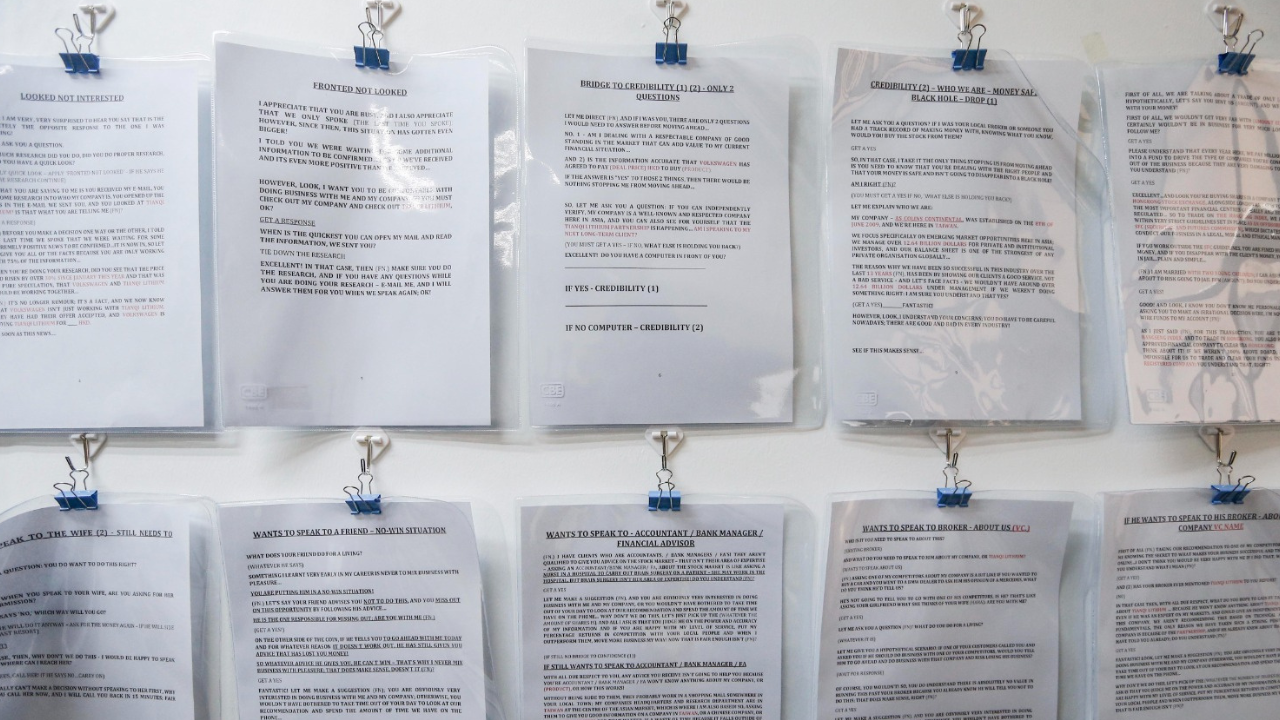Small-time scams may be rampant these days, but this international investment scam syndicate managed to rake in an astonishing total of RM200 million in the span of four years.
On 21 February, the Malaysian Anti-Corruption Commission (MACC) conducted a graft-busters' covert operation with the code name ‘Op Tropicana’ throughout 24 premises in the Klang Valley and Penang simultaneously. The police were not involved in the raid. Victims in Australia and the United Kingdom had been persuaded to park their money in non-existent investment portfolios. The syndicate had set up 24 companies to park the money transferred by victims abroad temporarily before the money was then moved to other overseas bank accounts before finally ending up in the syndicates’ accounts. This multi-layered approach was carried out to prevent its illegal operations from being detected. The fraudulent scheme’s operations had been unhampered since 2019 as they had bribed the authorities.
Members of the media covered the raid at a 14-storey building which served as an operation centre, or ‘boiler room’ in Petaling Jaya but were not informed about the full nature of the operations until the eleventh hour. A New Zealand national, one of the suspects, had tried to escape by jumping off the 14th floor but instead landed on the 11th floor, breaking his hand and leg in the process.

Numerous sheets of paper with guides written on how to persuade victims were hung on the walls, but the centre was almost empty besides there being a few telephones on each desk.
Apparently, the syndicate has used Voice over Internet Protocol (VoIP) phones, which make and receive calls over the internet and are not bound to a specific location, unlike landline phones. This allowed the syndicate to disguise their numbers to appear as if they were representatives of the particular companies. Besides the offices, houses had also been used by the syndicate as their center of operations.
MACC Chief Commissioner Tan Sri Azam Baki said that the syndicate was made up of Australians, Britons, South Africans, and Filipinos. He also said that the syndicate was believed to have bribed the authorities to take care of the safety of its members and enable it to operate its centres without being hindered.
The MACC is investigating the suspects who were captured for money laundering and corruption charges for allegedly corrupting members of the authorities who had safeguarded the scam centres.
Victims had been lured in by advertisements about non-existent investment companies on social media that had been posted by the syndicate. As soon as they registered to invest, they would receive a call from the syndicate to convince them to invest. 74 bank accounts belonging to individuals and companies with an estimated value of RM11 million have since been frozen.
The covert operation had been a collaboration of 164 officers from various agencies including the Immigration Department, the Malaysian Communications and Multimedia Commission, CyberSecurity Malaysia, Telekom Malaysia, the Malaysian Companies Commission, Tenaga Nasional Bhd, and the Inland Revenue Board.
Various methods including financial investigations, using covert operatives, and even going undercover had been used by the authorities to uncover the syndicate’s illegal activities.
Speaking to the New Straits Times, Azam said, "Intelligence was conducted in collaboration between agencies in Australia and several foreign countries, together with MACC's Anti-Money Laundering division."
Datuk Mohamad Zamri Zainul Abidin, Director of Anti-Money Laundering Division, (MACC) said that they had arrested 11 people for their suspected involvement, with another 70 arrested by the Immigration Department. The remand application for all the suspects would be carried out on 22 February.
Image credit: NSTP/AIZUDDIN SAAD and MACC





